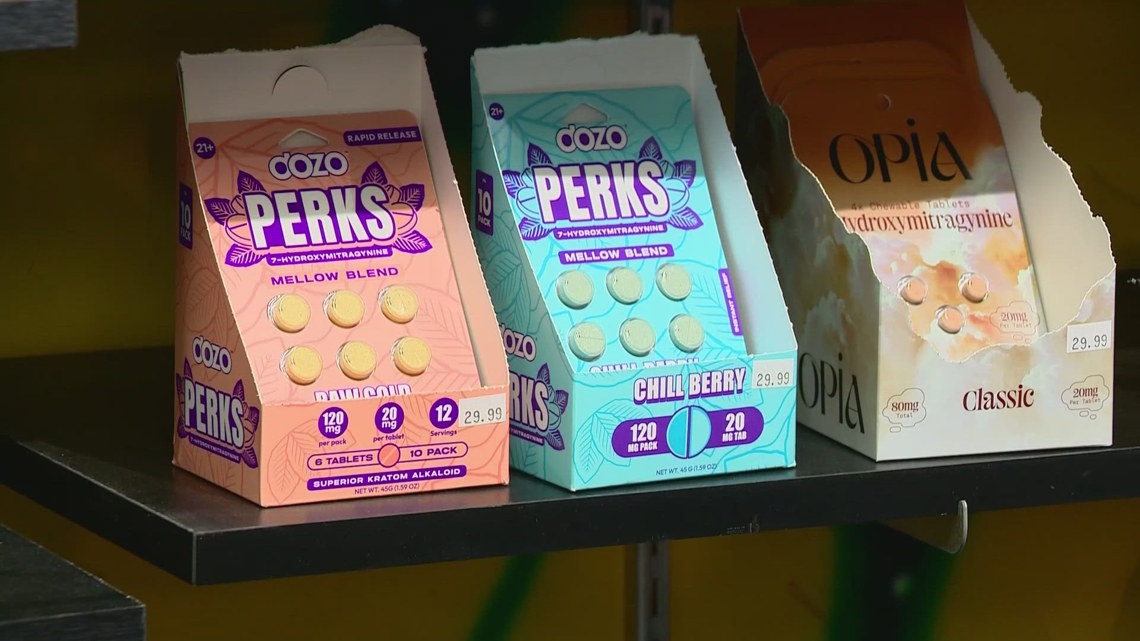
David Junkin, clinical director of Vida Recovery, said one of his clients was spending hundreds of dollars weekly to feed the addiction to Kratom products with 7-OH.
SAN ANTONIO — Health experts are sounding the alarm on a powerful compound found in some Kratom products that they say is fueling addiction and even deadly overdoses.
David Junkin, clinical director of Vida Recovery in San Antonio, has treated multiple patients suffering from Kratom addiction in just the last two months.
“They (companies) promote it as if it’s healthy and it’s not. It’s very addictive and I’ve seen lives ruined because of it,” Junkin said.
The Texas Department of State Health Services (DSHS) is urging people not to use products infused with elevated concentrations of 7-hydroxymitragynine, or 7-OH, stressing how destructive the substance can be both mentally and physically.
As of Aug. 27, the Texas Poison Center Network collected 192 reports of exposures involving kratom in 2025, which surpasses the number of reports (107) in all of 2024 and 122 in 2023.
The state health department indicated 11 of the 19 patients reporting recent exposure to concentrated 7-OH products experienced health issues prompting treatment at a healthcare facility.
Symptoms of 7-OH usage include nausea, agitation, confusion, seizures, respiratory depression and sleepiness, among many others.
Junkin noted some clients were spending up to $700 a week on Kratom while others chose their addiction over nutrition.
“One client chose to buy Kratom rather than eat,” he added.
While millions of Americans use Kratom to manage pain, anxiety, or depression, the substance is not FDA-approved. Junkin said many people turn to it while trying to quit opioids but end up with a new addiction.
“You’re trading one addiction for the other because once you’re on Kratom the withdrawal effects are just as bad or worse than getting off heroin or fentanyl,” Junkin said.
The warnings come after Los Angeles County health officials linked three deaths to 7-OH overdoses. Here in Texas, the state health department is urging residents not to use products containing the compound. Earlier this year, a 16-year-old boy in Dallas died after accidentally overdosing.
While Kratom remains legal in Texas, lawmakers have debated banning it altogether. Store owners like Jackie Walji, who runs Mellow Monkey, supports regulations to prevent abuse but not an outright ban.
“If someone came in saying, ‘I need more, I need more,’ I personally wouldn’t sell to them anymore,” Walji said.
“Maybe regulation says you can only get one of these a day, that might be the fine line.”
To learn more about the dangers of Kratom outlined by DSHS, go here.
